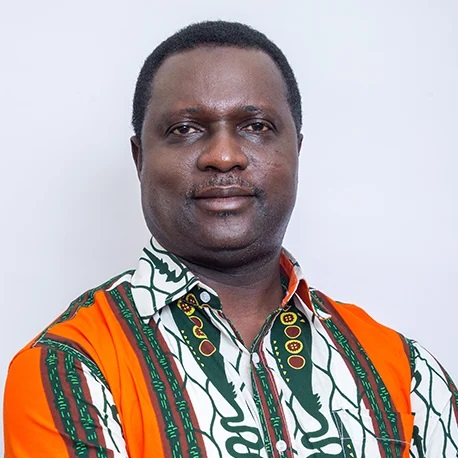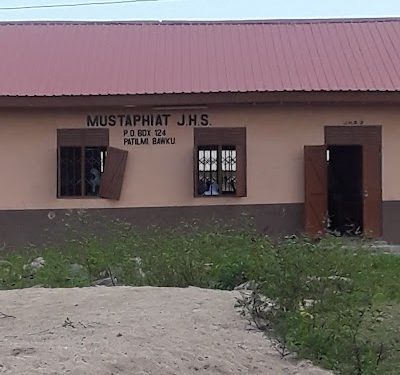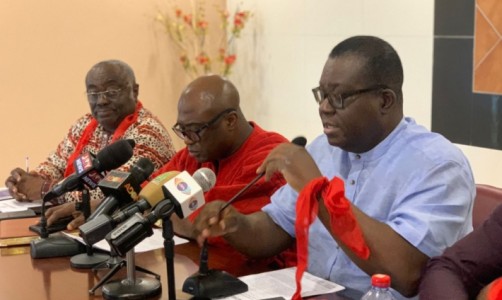Architects, Profiteers Are Still At Post

Information picked up by The Anchor suggests that officials under whose watch the alleged corruption scandal in the 2021 school placement occurred are still at post, without any shakeup, ahead of the release of this year’s placements by the Computerized Schools Selection and Placement System (CSSPS).
The Anchor is informed that no effort has been made by the authorities to effect changes since the scandal broke, leaving the directors, coordinators and their agents at the Free SHS Secretariat, CSSPS andthe Ministry of Education still at post and occupying their positions, as though nothing had happened.
Nobody has also been held responsible for the rot, as the suspected architects, conspirators and profiteers are still going about their normal duties and waiting for this year’s placements to be released as soon as possible.
There are those who believe that, the matter should be handed over to the Office of the Special Prosecutor (OSP) for further investigation and those found culpable to be punished.
Others are also of the opinion that the Minister of Education, Dr. Yaw Osei Adutwum, whose tenure the scandal occurred, should, as a matter of principle, accept responsibility and step aside to allow full-scale enquiry into the issue.
Interestingly, an invitation by the Education Committee of Parliament to Dr. Osei Adutwumto come and answer questions regarding the matter has not been to honoured, as the minister has failed to show up.
Sources within the committee have told The Anchor that the minister for the second time on Sunday, February 12, failed to show up for the meeting, after putting up similar behavior on Thursday, February 2, when he was billed to meet the committee.
Earlier, The Anchor reported that details had emerged that the protocol slot for the 2021 school placement, which became an avenue for corruption and was heavily abused, was practically hijacked by the Minister of Education.
After months of shielding an investigative committee report without success, it came to light that, out of the 5% protocol that is retained at the national level, the education minister alone had allocated to himself, a whopping 80%, while 20% was assigned to then director-general of the Ghana Education Service (GES), Prof. Kwasi Opoku-Amankwa.
The minister is also said to have moved the whole placement process from the Ghana Education Service to the Ministry of Education (MoE), without giving any explanation for his action.
“Prof. Amankwa indicated that, with the coming on board of the Ghana TVET Service, the Hon. Minister moved the whole placement process from the Ghana Education Service to the Ministry of Education for the 2021 school placement. He was assigned access to category “A” schools within the Ghana Education Service. He went further to say that out of the 5% protocol that is retained at the national level, he was assigned 20% and the Hon. Minister had 80%.”
This is contained in a testimony given by the former GES Director-General, Prof. Kwasi Opoku-Amankwa, when he appeared before the Ministry of Education’s investigative committee that probed the alleged corruption in the school placement.
The six-member committee report, a copy of which has been intercepted by The Anchor, is titled ‘REPORT ON ALLEGED CORRUPTION IN THE 2021 SENIOR HIGH SCHOOL PLACEMENT.’
Members of the committee include Mr. Edward Fiawoyife – Director Internal Audit (as Chairman), Mrs. Matilda Awiah Azuimah(ESQ) – Head of Legal at MoE, Mrs. Cynthia Storph-Tagoe (ESQ) – Head of Legal at GES, Mr. David Prah – Deputy D-G, TVET Service, Nana Baffour Awuah Richard – Director at Pre-Tertiary and Mr. Patrick Arthur – Principal Planning Officer at MoE.
The Anchor, in the coming days, will publish series of some shocking revelations contained in the committee’s report.
But a whistle-blower website, The Fourth Estate, reported a fraudulent payment made for the placement of a student into a category “A” school in 2022 was traced to the login access of the education minister.
Prof. Opoku-Amankwa was also one of only two persons with unfettered access to the computer system and could place or approve placement of students into category “A” schools.
Access to protocol placement into the most prestigious senior high schools was limited to the Minister of Education and the Director General of the GES to curb the payment of money for placement into category “A” schools.
That restriction did not stop the acts of corruption in Ghana’s most sought-after schools, resulting in the setting up of a committee by the Ministry of Education. The committee was set up after the Ministry of National Security wrote to complain about allegations of corruption in the system.
The report of the six-member committee, which The Fourth Estate has exclusive access to, states: “He [Prof Opoku-Amankwa] sighted [sic] an example in one of the cases that was reported that an amount of GHS7000 had been charged to place someone at Wesley Girls or Achimota School. A probe using the log report on the system showed that it was done with the Hon. Minister’s access which was being handled by Ms. Vera Amoah.”
The report adds: “Prof. Amankwah went on to say that subsequently, his permission to the log port on the placement system was blocked and so could not trace and act on complaints that came in thereafter.”
The committee spoke to Dr. Adutwum after taking Prof. Amankwa’s testimony, but the report does not state whether or not the minister denied the GES Director-General’s assertion that a fraudulent transaction was traced to his account.
When The Fourth Estate requested comment through the public relations officer of the Ministry of Education, the ministry declined to comment. It, however, said it would “study the investigative work, collaborate with relevant state institutions and address the issues raised accordingly.”
Prof. Opoku-Amankwa told The Fourth Estate that the system is designed such that he could see placements that were effected or approved by the Minister of Education and the minister could also see what he did in the system. A week after the 2022 placement started, however, he said his access to the system was revoked without any explanation to him.
The technical consultant of the school placement system told the committee that the decision on who should be granted access to protocol placement on the computerised system was communicated to him in a memo.
“The consultant receives instruction in the form of a memo generated by the Free SHS Coordinator and signed by the Hon. Minister to assign protocol access to some identified officers,” the report states.
However, it emerged that the Minister of Education later initiated some changes and instructions which were not documented.
An Assistant Research Officer in charge of procurement at the Free SHS Secretariat, Mohammed Kamel Issa, was given access to the category C schools to help resolve some of the placement issues. But two weeks after the placement process, Kamal’s access was blocked.
“The coordinator later informed him that the Hon. Minister had requested to meet him in his office at the Ministry. According to Kamel, he sought to find out from his supervisors the purpose of the intended meeting with the Hon. Minister as well as the reasons for the revocation of his access but he did not get any response from them.
“The meeting with the Hon. Minister, however, did not come on because the Free SHS Coordinator later came to inform him that the Minister did not need him again,” the report stated.
A coordinator for the CSSPS centre, Mark Sosu Mensah, explained to the committee that the students were placed into schools categorised into A, A1, B, B1 and C. He told the committee, “he was initially given access to category B1 and was later upgraded to category B schools. His access was communicated to him verbally by the Free SHS Coordinator. According to him, it was only in 2017 that his access was officially communicated to him in writing by the Hon. Minister.”
There were also other issues of corruption that the investigative committee discovered during the interrogation. A member of the Operations team at the Free SHS secretariat, Bright Appiah Kubi, “told the committee that he got a report that a parent paid GHS20,000 for the ward to be placed in Wesley Girls to read science but because he did not have access to the log report on the system, he could not check who did that placement.”
Mr. Appiah said that, in the past, such as in the 2019 placement, he could log in and verify who did the placement that was paid for.
Before the Ministry of Education set up its investigative committee, Prof Opoku- Amankwa had written to the National Intelligence Bureau (NIB) and the Criminal Investigations Department (CID) of the Ghana Police Service to investigate allegations of corruption in the placement of students into secondary schools.
TheFourth Estate understands that, following Prof. Opoku-Amankwa’s request, the NIB initially agreed and started the investigation, but exactly one month later, it wrote to the GES Director General, asking him to redirect his request to the CID.
The Fourth Estate sources say these investigations were stopped by “powers from above.” Prof. Opoku-Amankwa could not pursue this matter to the end. He was removed from office later that year.
He recently emphasised this in an interview with The Fourth Estate when he said: “If there is fraud in the matter, then I, as the Director-General, and the minister should take responsibility. I fully accept and agree, but I knew that I was part of it and I wanted to actually make sure that there were no challenges with it.”
Even while in office, Prof Opoku-Amankwa told the GES Committee that he could not “fully absolve himself from any issues of corruption because he delegated his access to one of his officers to do the work for him. He, however, went on to say that one good thing about the system is that anytime someone logs in with his credentials, he gets a notification alert to enable him to inquire into what was being done.”
Although the security agencies and the Ministry of Education’s committee did not uncover those behind the alleged fraudulent payments and placements, undercover investigations by The Fourth Estate revealed that a network of people charged money and placed students into category “A” and the most sought-after category “B” senior high schools in the country.
The Fourth Estate worked and then liaised with the police to arrest eight persons who are standing trial. None of them works at the Ministry of Education, Ghana Education Service, CSSPS Secretariat or the Free SHS Secretariat.
The Fourth Estate also found out that protocol placement into the category “A” schools after payments were done could only be approved by the Minister of Education and the Director General of the GES.
More To Come…
Source: Anchorghana




